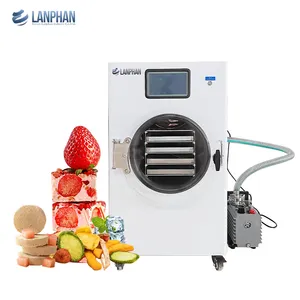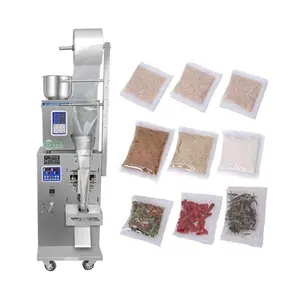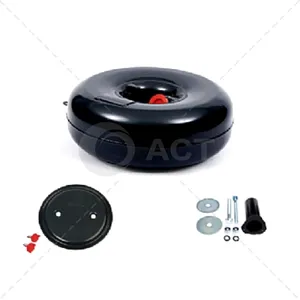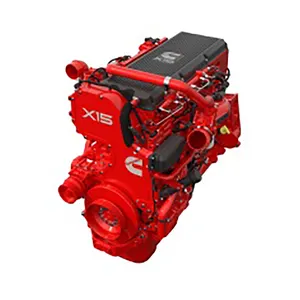Popular in your industry




















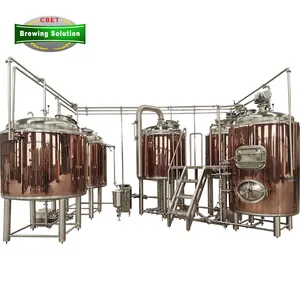












































Top categories
About microbrewery equipment
What is Brewery Equipment For Microbrewing
Brewery equipment for microbrewing is a specialized set of machinery designed to facilitate the brewing process on a smaller scale, often for craft breweries and home-brewing enthusiasts. These equipment pieces are tailored to handle smaller batches and are built with precision to maintain the quality and consistency of the beer. The equipment includes a range of machinery such as mash tuns, brew kettles, fermenters, and bottling and kegging systems.
The principle behind brewery equipment is to provide brewers with the tools necessary to produce beer in a controlled and efficient manner. Mash tuns, for example, are vessels where milled grains are mixed with water to create a mash. The combination is then heated to facilitate the conversion of starches into sugars. After the mashing process, the sugary liquid, known as wort, is separated from the spent grains. It is then boiled and hops are added before the wort is cooled and transferred to fermenters.
Once in the fermenter, yeast is introduced to the wort, and the fermentation process begins. During fermentation, the yeast consumes the sugars and produces alcohol and carbon dioxide. The beer then undergoes conditioning, where it matures and carbonation develops. Finally, the beer is packaged into bottles or kegs using a range of filling systems. Each piece of equipment is integral to the brewing process and contributes to the overall quality of the final product.
Types of Brewery Equipment for Microbrewing
The range of brewery equipment available is vast, each tailored to different aspects of the brewing process. Here are some common types:
-
Milling Equipment: This type is used to crush grains into a fine powder, which is the first step in the brewing process. A mill can be hand-operated or motor-driven and is essential for creating a consistent particle size that affects the lautering process.
-
Hot Liquor Tanks (HLT): HLTs store hot water that will be used for mashing in. They come with insulation to maintain temperature and often include a sparging device to rinse the grain during lautering.
-
Mash Tuns: Mash tuns are vessels used to mix crushed grains with hot water to convert starches into sugars. They may be insulated to help maintain temperature and are typically designed with a false bottom to filter out solid grain particles.
-
Fermentation Vessels: Also known as fermenters, these are where yeast is added to the wort after cooling to ferment and condition the beer. They can be open or closed, with closed fermenters often being used for high-gravity or specialty beers.
-
Conditioning Equipment: This includes bottling lines, kegging machines, and other equipment used for packaging the final product. Depending on the scale of production, these can be manual or automated systems.
How to choose Brewery Equipment For Microbrewing
Selecting the right brewery equipment is a critical decision for any business involved in microbrewing. It's essential to consider factors such as production volume, available space, budget constraints, and the types of beer being brewed. For example:
-
If space is at a premium or there are plans for expansion, smaller footprint systems like a pilot or nano brewery might be more appropriate.
-
For businesses focused on specific types of beer, such as lagers or ales, investing in specialized fermentation tanks or serving vessels could be beneficial.
-
When considering automation levels, match the system complexity with your operational capabilities—more automation can increase efficiency but may also require more technical expertise for maintenance and operation.
-
Ensure that the chosen equipment meets local regulations and compatibility with your intended brewing process (e.g., direct-fire vs. steam systems) and product lineup (e.g., kegs vs. bottles).
About Brewery Equipment For Microbrewing on Alibaba.com
For those looking to start or expand their microbrewery operations, Alibaba.com stands out as an exceptional resource for sourcing high-quality brewery equipment. With an extensive selection from suppliers around the world, Alibaba.com provides businesses with the flexibility to find the perfect match for their specific needs—be it for a small craft brewery or a large industrial operation.
Alibaba.com's global reach also means that buyers can find competitive pricing due to the vast marketplace. The platform caters not only to an array of production scales but also offers a diversity of equipment options to meet any requirement without compromising on functionality or style. From stainless steel fermenters to advanced filtration systems, every piece of machinery listed on Alibaba.com is designed with longevity and ease of operation in mind.
Moreover, Alibaba.com fosters confidence in B2B transactions through services like Trade Assurance—a payment protection service that ensures orders are delivered as expected before payments are released. With an emphasis on customer satisfaction and support throughout the purchasing journey, Alibaba.com simplifies international trade for businesses while helping them secure equipment that can drive their success forward.
Common FAQs for Brewery Equipment For Microbrewing
What types of brewery equipment are essential for a microbrewery?
A microbrewery requires essential equipment such as a mash tun, a boil kettle, a fermentation vessel, a conditioning tank, and a bright tank, which are specifically designed for brewing smaller batches of craft beer.
How do I determine the right size of brewery equipment for my business?
The size of your brewery equipment should be based on your production volume and the scale of your operation. It is important to consider future growth and invest in equipment that can accommodate that volume without overburdening your system.
What materials are commonly used in brewery equipment?
Brewery equipment is often made from food-grade stainless steel, which is durable, easy to clean, and resistant to corrosion and contamination. Copper and red copper may also be used for certain components.
Can I find used brewery equipment for sale?
Yes, used brewery equipment is available and can be a cost-effective option for businesses. It is important to assess the condition of used equipment to ensure it meets your quality standards.
Are there any specific features I should look for in brewery equipment for sour beer production?
For sour beer production, look for equipment that can handle materials with high acidity levels and is made from materials that can withstand potential corrosion, such as stainless steel or specific types of plastic or glass.
What is the difference between a pump and a pressure vessel in brewery equipment?
Pumps are used to move liquids from one vessel to another, whereas pressure vessels are sealed containers designed to withstand high pressure. The choice between them will depend on the intended use within the brewing process.
How can I ensure the brewery equipment I purchase meets safety standards?
To ensure equipment meets safety standards, look for certifications or compliance with regulations relevant to your region. Choosing equipment made from high-quality materials and components is also crucial.
What after-sales services should I consider when purchasing brewery equipment?
Consider after-sales services such as online support, video technical support, engineers available to service machinery overseas, and how easy it is to obtain replacement parts or service consumables.
How does the processing type affect the choice of brewery equipment?
The processing type—whether it's craft beer, carbonated beverage, or milk—will determine the specific type of equipment needed. Equipment designed for one processing type may not be suitable for another.
Is it possible to customize brewery equipment based on my specific requirements?
Many suppliers offer customization options for brewery equipment to cater to unique specifications or operational needs. Customization may include modifications to size, material, functionality, and additional features.
What should I look for if I want to brew both traditional and modern styles of beer?
For breweries that wish to brew both traditional and modern styles, look for a versatile brewhouse system that can handle various methods such as decoction mashing and modern control systems that allow for producing a wide range of beers.
How do I choose between an all-in-one system and separate components?
The choice between an all-in-one system and separate components depends on your brewery's specific needs. An all-in-one system can be more compact and integrated but may have less flexibility in certain brewing processes, whereas separate components offer more customization options.

